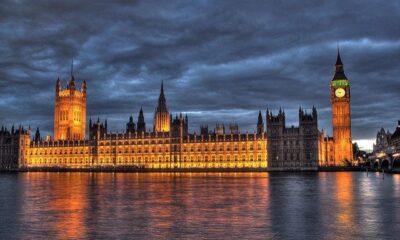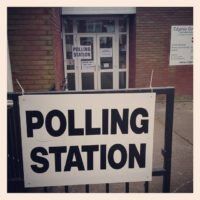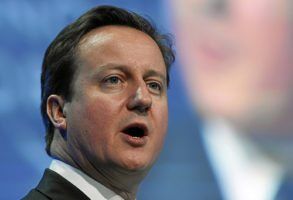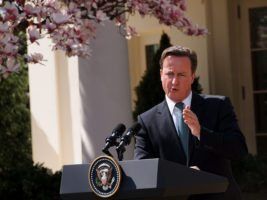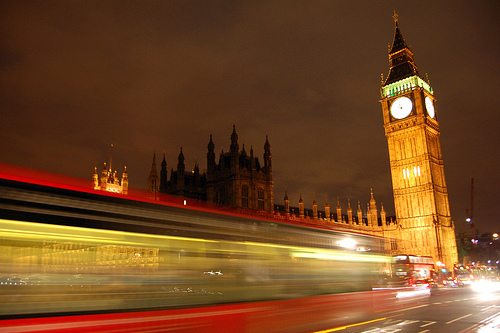

Features
New report shows huge gap remains for women’s representation in politics
A major new report by a coalition of democracy organisations reveals that despite progress on May 7th, there is still a long way to go before women are equally represented in politics. “To date, there have been just 450 women MPs in Britain’s history – below the number of male MPs who currently sit in the House of Commons (459).”
Sex and Power 2015, coordinated by the Centre for Women and Democracy’s Nan Sloane, is the first study on women in politics since the General Election – and offers significant new insights into the state of female representation in British democracy today.
Key findings:
– To date, there have been just 450 women MPs in Britain’s history – below the number of male MPs who currently sit in the Commons (459)
– At the last General Election, 54% of Labour candidates in target seats were women, as well as 45% of Greens, 41% of Lib Dems, 35% of Conservatives, and 37% of the SNP’s candidates
– Women made up 26% of all candidates on May 7th (up from 21% in 2010), with the Greens, Labour and the SNP having the most (37%, 36% and 33% respectively), while just 12% of UKIP candidates were female.
The research has also found that women make up:
– Under a third (32%) of government Cabinet members, and 24% of junior government posts
– 26% of the whole government (seven in the Cabinet and 20 in ministerial roles)
– Only 21% of the government’s Implementation Taskforces – key decision-making bodies
– 24% of Cabinet Committee and Sub-Committee places. There are no female chairs of these committees.
In addition, just 22% of Select Committee chairs elected in June are women, while of the 303 places on Parliamentary committees, 33% are women.
Outside of the government, women make up 55% of the Liberal Democrats’ new Shadow Cabinet, 52% of Labour’s Shadow Cabinet, and 50% of SNP spokespeople.
The report recommends five key areas for improving female representation:
– Know the Facts: the Electoral Commission should gather information on the diversity of candidates, with Equalities Monitoring Forms
– Commit to Change: Parties should take urgent steps to boost the number of female candidates – reviewing selection procedures, publishing action plans and considering positive action
– A Better Working Environment: Parliament and parties should implement paid maternity and paternity leave, revisit working hours, and offer diversity awareness training and advice. All parties should have rigorous complaints procedures regarding sexual harassment
– Promote Women: Parties should commit to 50:50 cabinet/shadow cabinet teams by 2020
– An Equal Voice: The media should cover female politicians in line with the NUJ Code of Conduct
Nan Sloane, report author and Director of the Centre for Women & Democracy: “The outcomes for women in Parliament at this year’s election are largely encouraging, but they also demonstrate how far we have to go, not just in terms of women MPs per se, but also when it comes to the nitty gritty of government and, in particular, to the House of Lords, which remains both undemocratic and unrepresentative. We get real change when both political parties and the wider Westminster village focus on achieving it, and hopefully this report will help them to do that in a meaningful way.”
Katie Ghose, Chief Executive of the Electoral Reform Society: “Clearly we still have a long way to go before women are fairly represented in politics. The public want our democratic institutions to reflect real life, not a boys’ club. To make that happen, we could start by scrapping our out-dated voting system, as countries with more proportional systems have a much better record for female representation.”
Sam Smethers, Chief Executive of the Fawcett Society: “Real progress has been made on women’s representation in the commons – but it’s time to speed up the pace of change.
“We need political parties to take stock and focus on how to achieve 50:50 representation by 2020. Failing to do that means that our politics remains out of touch and is missing out on much needed talent and expertise.
“There are a range of positive steps that the political parties can take but evidence shows that the use of all women shortlists remains by far the most effective. With more women standing for parliament than ever before, equality in Parliament is more than achievable and it is long overdue”
Ruth Fox, Director & Head of Research at the Hansard Society: “There was modest progress in female representation in Parliament at the election, and the number of ministers has increased, but the fact that no woman chairs a major Cabinet Committee or Sub-Committee is disappointing. It is at these meetings that the vital decisions affecting women’s lives are made and the chair is often key in driving the agenda and chasing progress.”
Alexandra Runswick, Director of Unlock Democracy: “The lack of women in senior decision making roles is not just unjust, it is wasteful. Britain is missing out on women’s contributions. It is a symptom of just how unrepresentative our democracy is of wider society.
“The pace of improvement is still too slow and the best person for the job may still be snubbed because of gender inequalities. Political parties can and must commit to making the changes sorely needed to enable women to achieve their full potential in politics.”
Read Sex and Power 2015 here.


 Environment12 months ago
Environment12 months agoAre Polymer Banknotes: an Eco-Friendly Trend or a Groundswell?

 Features11 months ago
Features11 months agoEco-Friendly Cryptocurrencies: Sustainable Investment Choices

 Features12 months ago
Features12 months agoEco-Friendly Crypto Traders Must Find the Right Exchange

 Energy11 months ago
Energy11 months agoThe Growing Role of Solar Panels in Ireland’s Energy Future
